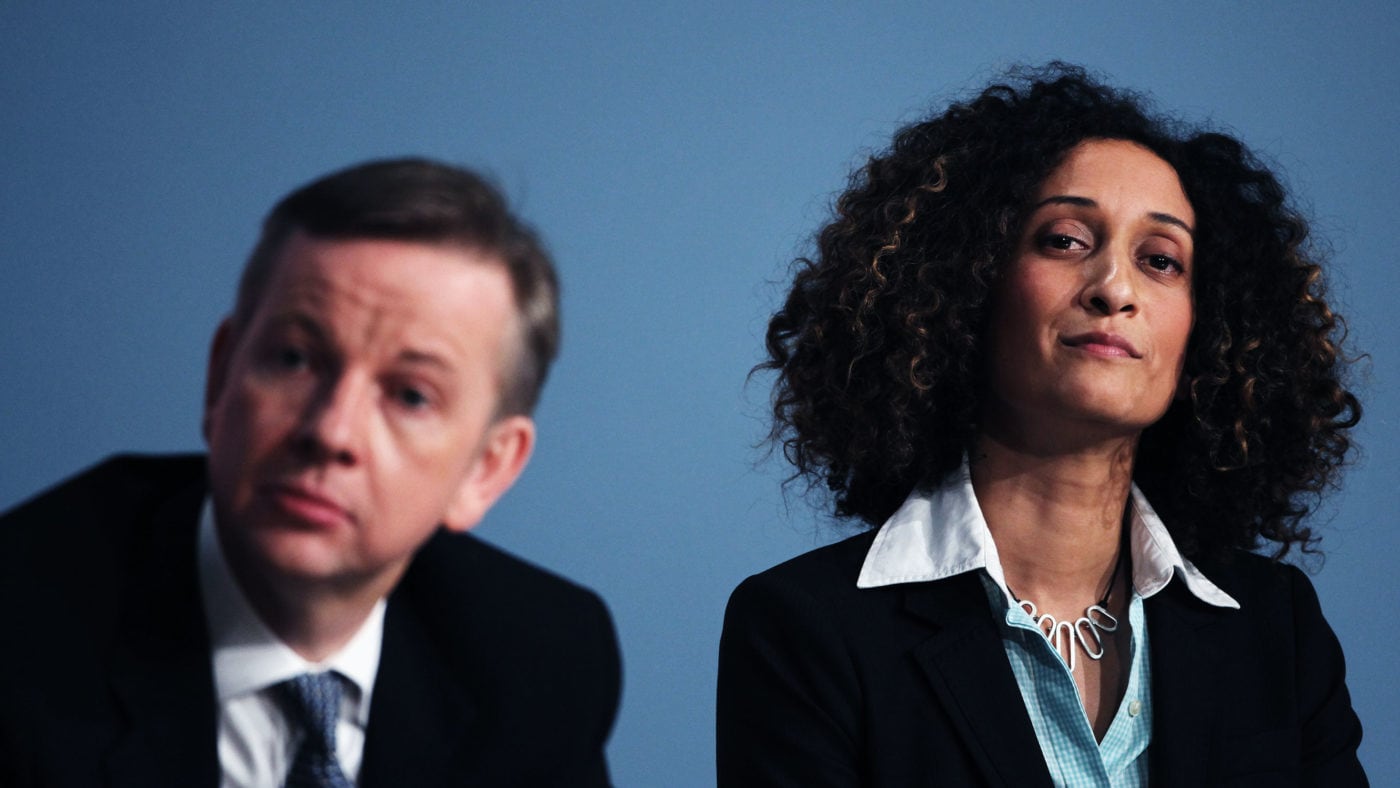Charismatic, uncompromising, straight-speaking and still working on the frontline, ‘Britain’s strictest Headteacher’ wasn’t a typical choice to chair a quango.
Indeed, that was part of Katharine Birbalsingh’s appeal when then Equalities Minister Liz Truss appointed her to head up the Social Mobility Commission (SMC) back in 2021. The move signalled that it was no longer business-as-usual in the equalities business. And, given Birbalsingh’s reputation for independence of mind, it guaranteed that the SMC would pursue its own agenda, rather than slavishly toe the government line.
So it’s a real shame that the founder and principal of England’s top-performing state school has now decided to step down from the role, having concluded that she comes with ‘too much baggage’ and that her ‘propensity to voice opinions that are considered controversial puts the Commission in jeopardy’.
Katharine’s appointment really raised the profile of the SMC and its important work. She and her new commissioners were encouraging people to consider social mobility in a much broader way than before. Naturally, getting people to approach things differentlyfaced pushback, especially from those who had benefited from the status quo. And diversity of thought is so important when grappling with intractable issues like social mobility. Juggling the role with that of Headteacher and her other activities must have been tricky, but she seemed to be managing that epic workload well.
So while I lament her standing aside, the fact she did so shows real self-awareness, courage and integrity.
I’ve written previously about the need for the Government to take public appointments seriously, and avoid appointing people who are actively hostile to its agenda.
However, Birbalsingh’s case is not unique. Her resignation once more raises a question as to whether people with non-establishment views face disproportionate criticism and scrutiny compared to more establishment-friendly figures.
For example, in 2020 we saw attacks on Tony Sewell and others who joined the Commission on Race and Ethnic Disparities. Most had worked on the frontline for decades, quietly getting on with making things better in communities. Yet they faced horrendous abuse, including racial slurs, for accepting the roles. Some activists even attempted to crowdfund a legal case challenging Sewell’s appointment.
There was a similarly hostile reaction to Dame Rachel de Souza’s appointment as Children’s Commissioner. In spite of her years of success in schools, people questioned her closeness to Conservative ministers, and how aligned her approaches had been to the Government’s.
The Education Select committee even went so far as to write to the Education Secretary with ‘observations’ about Dame Rachel’s suitability for the job and recommended areas to expand her knowledge and experience. When you consider that de Souza has probably forgotten more about improving children’s lives than the committee knew in total, it makes you want to weep, especially given the way it has waved through other appointments.
These are just a couple of cases, and I could have picked many more.
It seems that the best way to secure and keep a public role is to only hold or promote views considered acceptable by the broader establishment. If you can’t do that, say or do nothing that suggests you think differently, lest it emerge later on when you’re in the frame for something, and a mob demands you be discounted or dismissed for wrongthink.
It’s such a shame. It’s also counterproductive because it dramatically reduces the pool of talented and qualified individuals that organisations can draw on. Why put yourself forward for a role if you might be rejected for your views, not competence, and face public hassle as part of the bargain too?
In the case of Katharine Birbalsingh, we’re lucky that in Alun Francis there was already a superb deputy Chair ready to step up. The SMC will be able to carry on its good work with minimal disruption – but this isn’t always the case.
How we get greater diversity of experience and expertise back into organisations is still a massive challenge, and it’s one that we mustn’t shy away from. Whether it’s for practical or philosophical reasons, the sooner we become more welcoming of people who see things differently, the better. If something good can come out of Birbalsingh’s experience, perhaps it will be as a catalyst for that kind of change. Here’s hoping.
Click here to subscribe to our daily briefing – the best pieces from CapX and across the web.
CapX depends on the generosity of its readers. If you value what we do, please consider making a donation.


